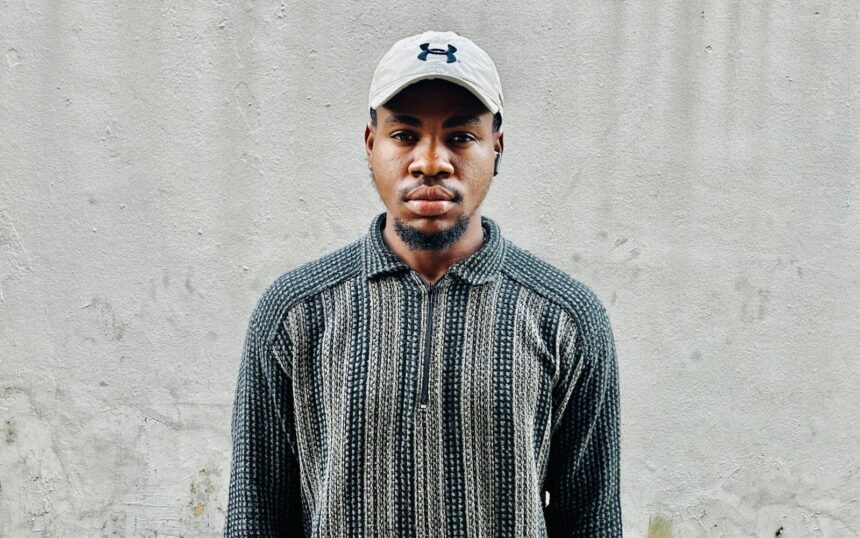I get so happy when one person can connect with and understand my stories and they tell me how they felt and what they felt when they watched it. Whether positive or negative, the feedback gingers me to keep creating in any way or form that I can.
Welcome to Hurwitz.TV’s Directors Interview Series, where we chat with some of the most influential filmmakers from all over the world.
In this series, you’ll have the opportunity to gain profound insights from the minds and creative journeys of these cinematic storytellers. Our goal is to explore the art of filmmaking, discover the inspirations and motivations that drive these directors, and delve into the captivating stories behind their remarkable works. From seasoned veterans to emerging talents, we talk about their artistic influences, memorable experiences, and the challenges they’ve faced along the way.
Today, I am joined by Nigeria-based Adedire Badejo. In our conversation, we delved into his unique journey in the world of cinema and gained insights into his creative process.
Dennis: Thank you for joining us! To kick off, can you tell us a little bit about yourself and your background?
Adedire: My name is Adedire Badejo; most people call me ‘Dire, Direbaba, or Stubborn goat. born and raised in Lagos, Nigeria. I lived a pretty simple but boisterous life growing up here. Eating too much gala (Nigerian snack) stunted my desired height a bit but hey, I loved eating that stuff.
Dennis: Have you always wanted to become a filmmaker? What drove you to pursue this career path?
Adedire: I would say yes; because the earliest memory I can recall since I was born (without consent by the way) is playing out various scenarios to situations that may or may not have happened in my head as a kid. I’d assign roles to my cousins and we’d all have fun acting them out and interpreting it in our own way. I also remember using the Nokia symbiote phones with horrendous camera quality to make pause and play effects that I saw on YouTube (back when YouTube was just starting up). We’d make fake trailers for movies that we’d seen and enjoyed or just basically anything we wanted to shoot. That was kind of like the first spark in my head and since then, I’ve been going with the flow.
Dennis: What was the greatest piece of advice given by a mentor that shaped the artist that you are today?
Adedire: The way I live my life, I kinda find new ways to remold and improve myself. And besides the constant self-talking, there have been tons of advice from friends and family that have helped me grow confidently in my art. But for some reason, I can only think of two quotes right now. The first: Just do it (Nike) and the second is by Pharrell Williams “You are already that person. Just put yourself in that place.”
Those two are the most prominent pieces of advice I can recall right now.
Dennis: Which movies and filmmakers inspire you the most?
Adedire: I’m a huge fan of Quentin Tarantino. I’m talking about squealing-sign-my-forehead type of fan. I love his approach to movies. You can tell he has fun writing his stories; which is so awesome. I also love Martin Scorsese’s directing, Stanley Kubrick, and Akira Kurosawa for his beautiful cinematography.
Dennis: What are the most challenging and rewarding aspects of making a movie?
Adedire: Funding sits at the top of the list no matter how hard I try to downplay it. I am an independent filmmaker so I always have to keep compromising in order to get what I want in the most cost-effective way possible. I’m really grateful for my friends cause they come through for me every time I trouble them with my ideas. Especially Molawa Davis and Abuah Martins; we basically made all of this together. Plus, I shoot and edit all my films myself so that takes a bunch out of the production cost. I’ve been happy with everything I’ve done so far even with the crazy limited resources that I have. But yeah, it’d be nice to have more structure when proper funding comes.
As for the rewards, it has always been reception. I get so happy when one person can connect with and understand my stories and they tell me how they felt and what they felt when they watched it. Whether positive or negative, the feedback gingers me to keep creating in any way or form that I can. I love that so much.
Dennis: Let’s talk about your short “Something You Are.” Can you walk us through your creative process in making this movie? What was your inspiration behind it?
Adedire: Well Something You Are is an attempt to make people reflect on their actions even before they make them. Especially when it comes to moments of external conflict or turbulence. Peace starts inside us first before we can project that towards our environment. So I went through a lot of scripting; different scenarios and situations that I could portray that moment of peace. I eventually ended up coming up with the storyline for Something You Are as a result of that approach. I also want to add that it wasn’t necessarily made to highlight the passenger’s disability. It was about that moment of selflessness for peace’s sake. And I think everyone can strive for that.
Dennis: Lastly, name a filmmaker or an actor you would love to collaborate with in the future and why.
Adedire: I’d love to work with Leonardo DiCaprio. He’s one of the most profound actors out there with the ability to let go of himself and fully immerse himself into the character he has been assigned. He makes the character a second skin and wears it so well; I’d love to meet him and possibly shoot a short monologue or something. I know he’d kill it.
Check out Dire’s short films and other works here.




